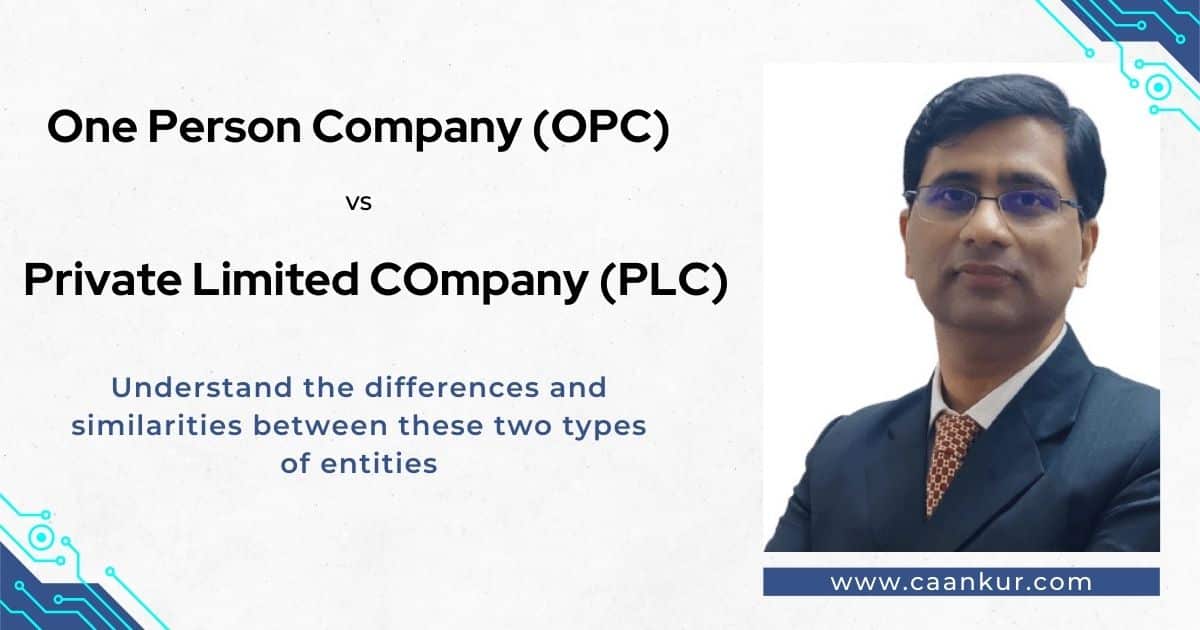If you are planning to start a business in Patna, understanding the different forms of business entities, namely the Private Limited Company (PLC) and the Limited Liability Partnership (LLP), is essential to decide which one would be the right fit for your venture. Here with this guide, we are trying to comprehensively discuss the key differentiators between these two, encompassing aspects such as the registration process, cost, features, ownership, compliance, fines, penalties, and other relevant factors.
Process Of Registering The Company
Starting with the registration process, the foundation of both PLC and LLP involves different procedures. For a PLC, you need to secure the Director Identification Number (DIN) and Digital Signature Certificate (DSC), followed by name approval, MOA & AOA filing, and final incorporation. On the other hand, to register an LLP, you should acquire a DSC, reserve the LLP name, file incorporation documents, and draft a partnership agreement. Both processes can take roughly 15-20 days, depending on the accuracy of your documents and the efficiency of your legal help.
Cost Involved in Registration
When it comes to cost, LLPs are generally less expensive to set up than PLCs. The cost for LLP registration in India can vary from Rs. 10,000 to Rs. 12,000, including government fees and professional charges. In contrast, the cost of setting up a PLC in India can range from Rs. 15,000 to Rs. 20,000, including the same variables. The exact cost can vary depending on the state of registration and the professionals involved.
Different Features Of the Company
PLCs and LLPs have distinct features that make them unique. PLCs are separate legal entities that limit shareholder liability to their shares. They are required to have a minimum of two shareholders and two directors. On the other hand, LLPs also exist as separate legal entities, where the liability of the partners is limited to their agreed contribution. They can have a minimum of two partners and no limit on the maximum number.
Ownership
Ownership structure in PLCs is determined by the distribution of shares. The shareholders are the owners of the company, and they elect directors to manage it. However, in an LLP, the partners own and manage the business. The rights and duties of partners in an LLP are governed by the LLP agreement.
Compliances To Cover
Compliance requirements also set PLCs and LLPs apart. A PLC has a higher compliance burden, requiring periodic filings with the Registrar of Companies (RoC), maintenance of statutory registers, and conducting Annual General Meetings. Conversely, an LLP’s compliance requirements are lower, including only the yearly Statement of Accounts and Solvency and Annual Return filing with the RoC.
Other Factors
Several other factors should be considered while deciding between an LLP and a PLC. For example, PLCs enjoy a higher degree of trust and prestige. They also have more options for raising funds, as they can issue shares and debentures. In contrast, LLPs are more suitable for small to medium-sized businesses that require flexibility in management and less compliance burden. Further, the penalties for non-compliance can be steep for both entities.
Choosing between a Private Limited Company and a Limited Liability Partnership in Patna depends on your business needs, financial resources, and long-term goals. Each has its own strengths and drawbacks, and it’s up to you to decide which entity aligns best with your vision for your business. Further, you can take assistance from a chartered account in Patna to get more detailed information about the company type you should select. They can help you with proper knowledge of the sectors and give you much-required information that can help your company get compliant in the right direction.





